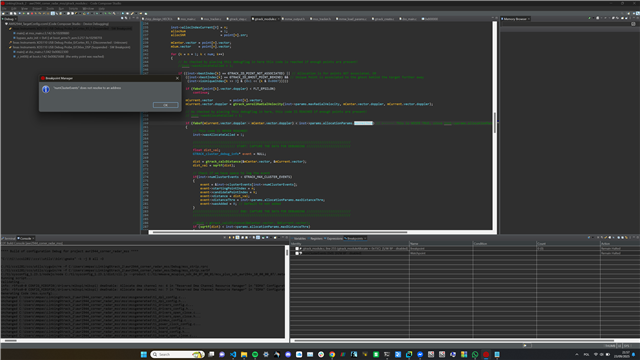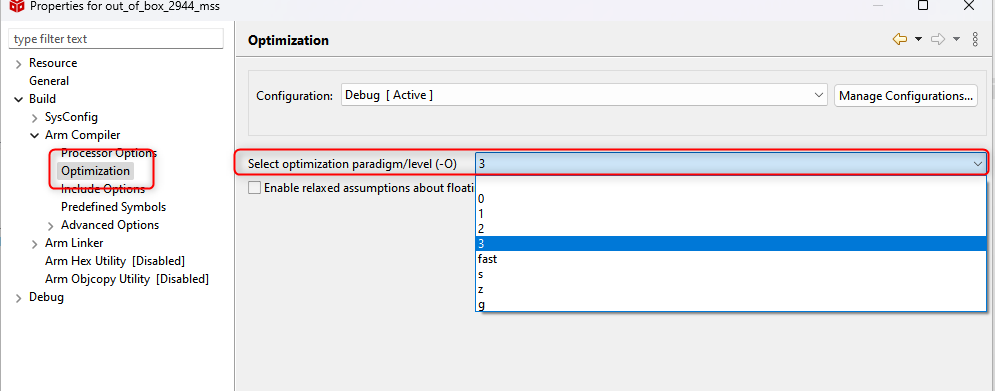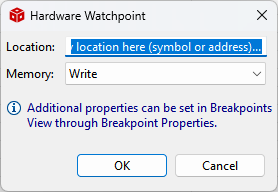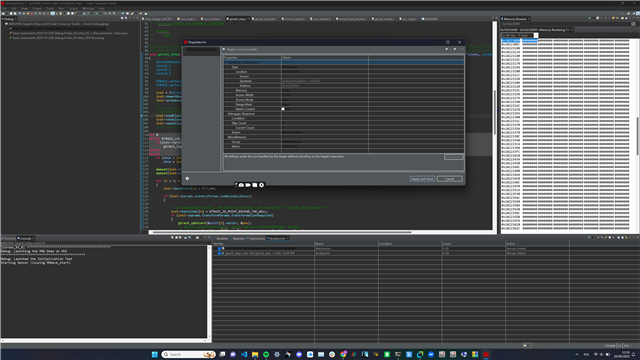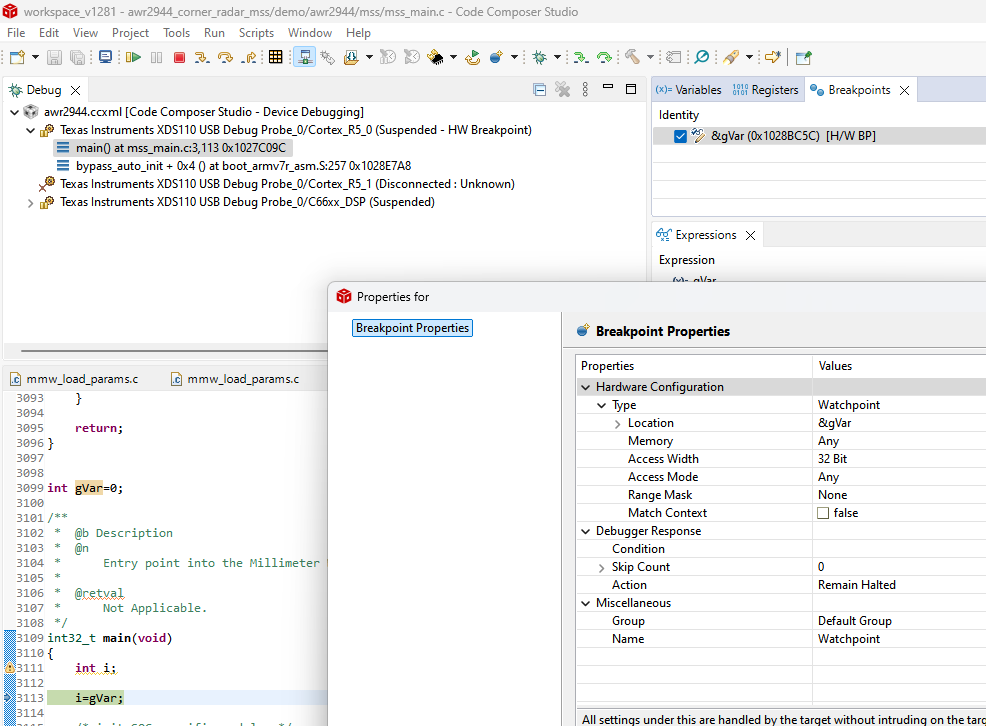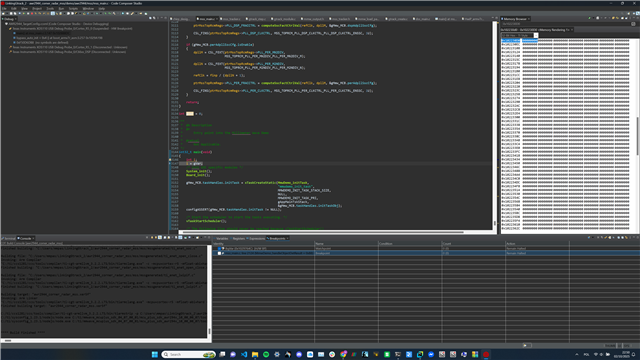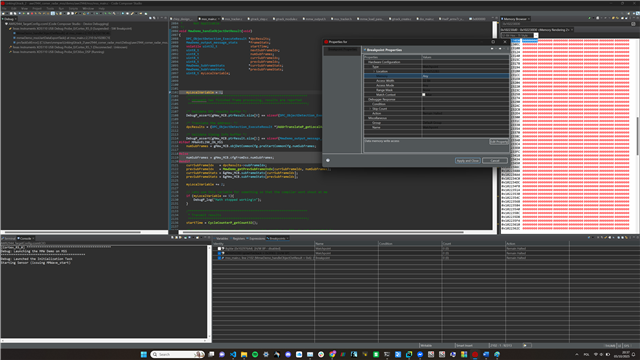Other Parts Discussed in Thread: AWR2944EVM, AWR2944
Tool/software:
Hello TI experts,
I am working with the HECR demo for the AWR2944EVM. Currently I am debugging the trackers code within CCS12.
I have modified the demo to stream custom debugging TLVs and I have found out that the key problem is that the tracks don't get spawned because the if statement inside of gtrack_moduleAllocate inside gtrack_module.c is never true:
- if (fabsf(mCurrent.vector.doppler - mCenter.vector.doppler) < inst->params.allocationParams.maxVelThre)
This seems to be because inst->params is populated with incorrect data despite the settings in chirp_design_HECR.h. To investigate this further I have several questions.
So that is why I want to ask you:
- How to set a data watchpoint for inst->params.allocationParams , so that I can analyze all reads/writes to this variables address during program execution?
- How can I change the compilers optimization settings so that it includes more debugging flags (, i.e. form -O3to -O0)?
Regards,
Mark


